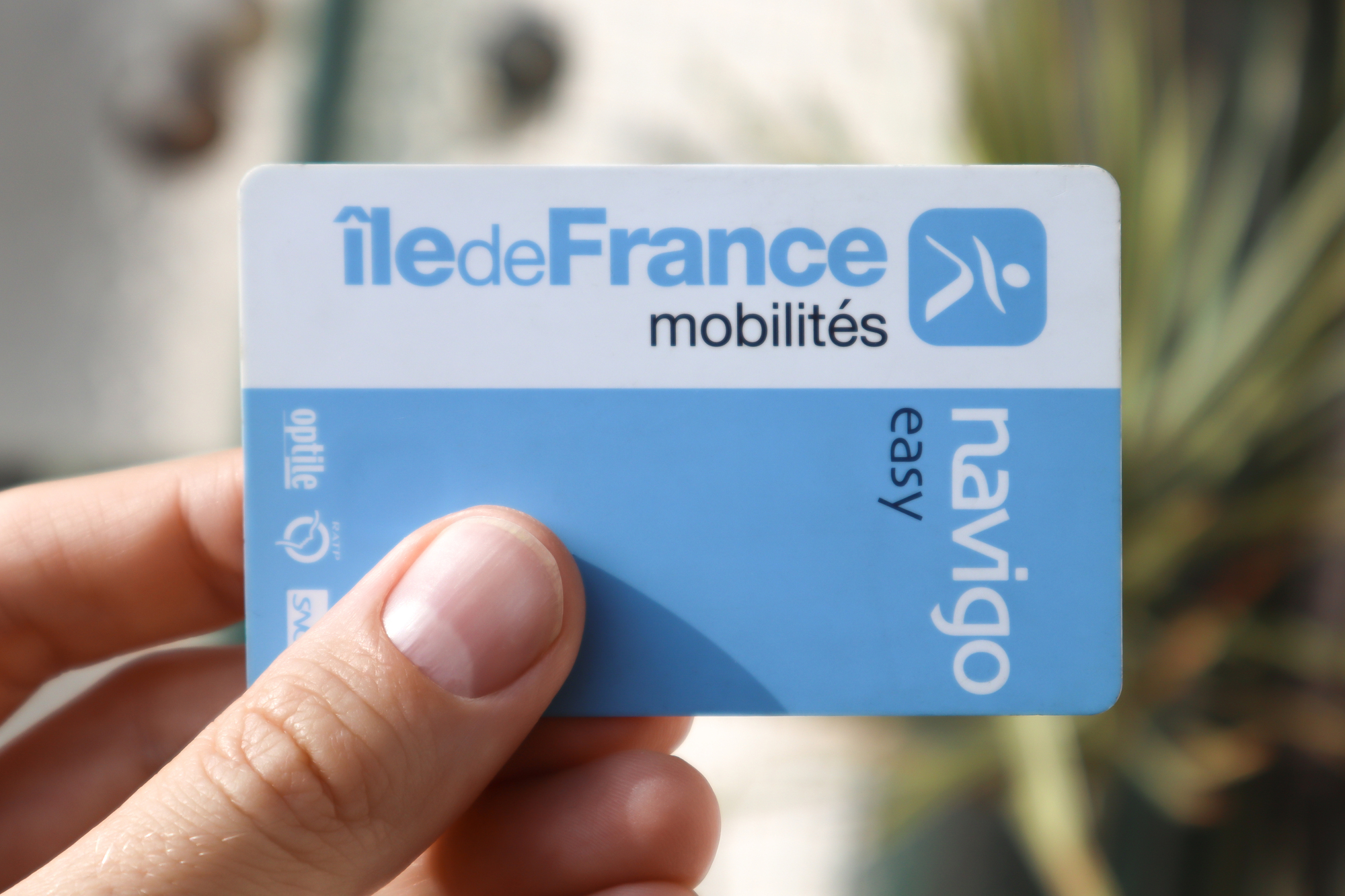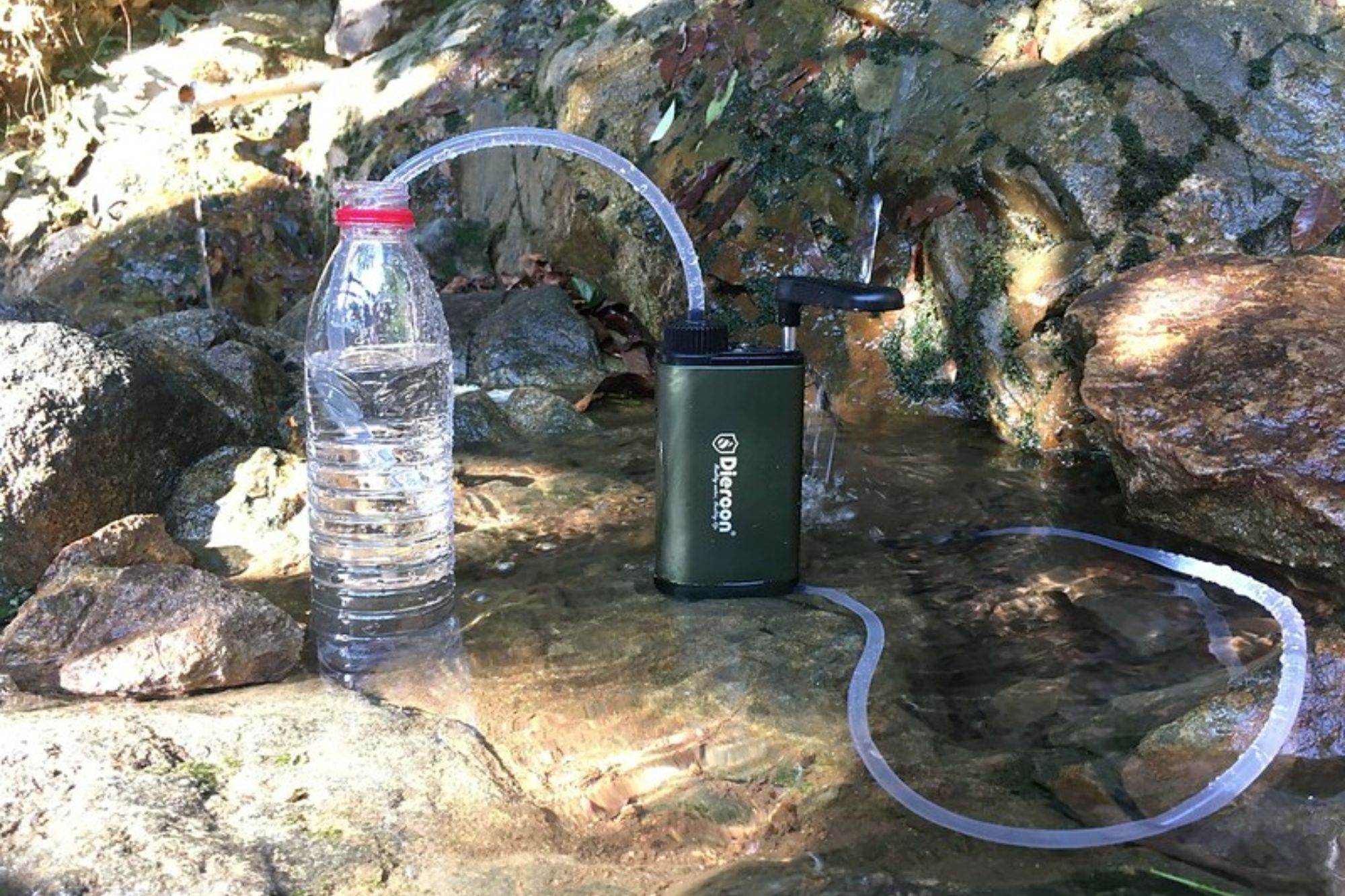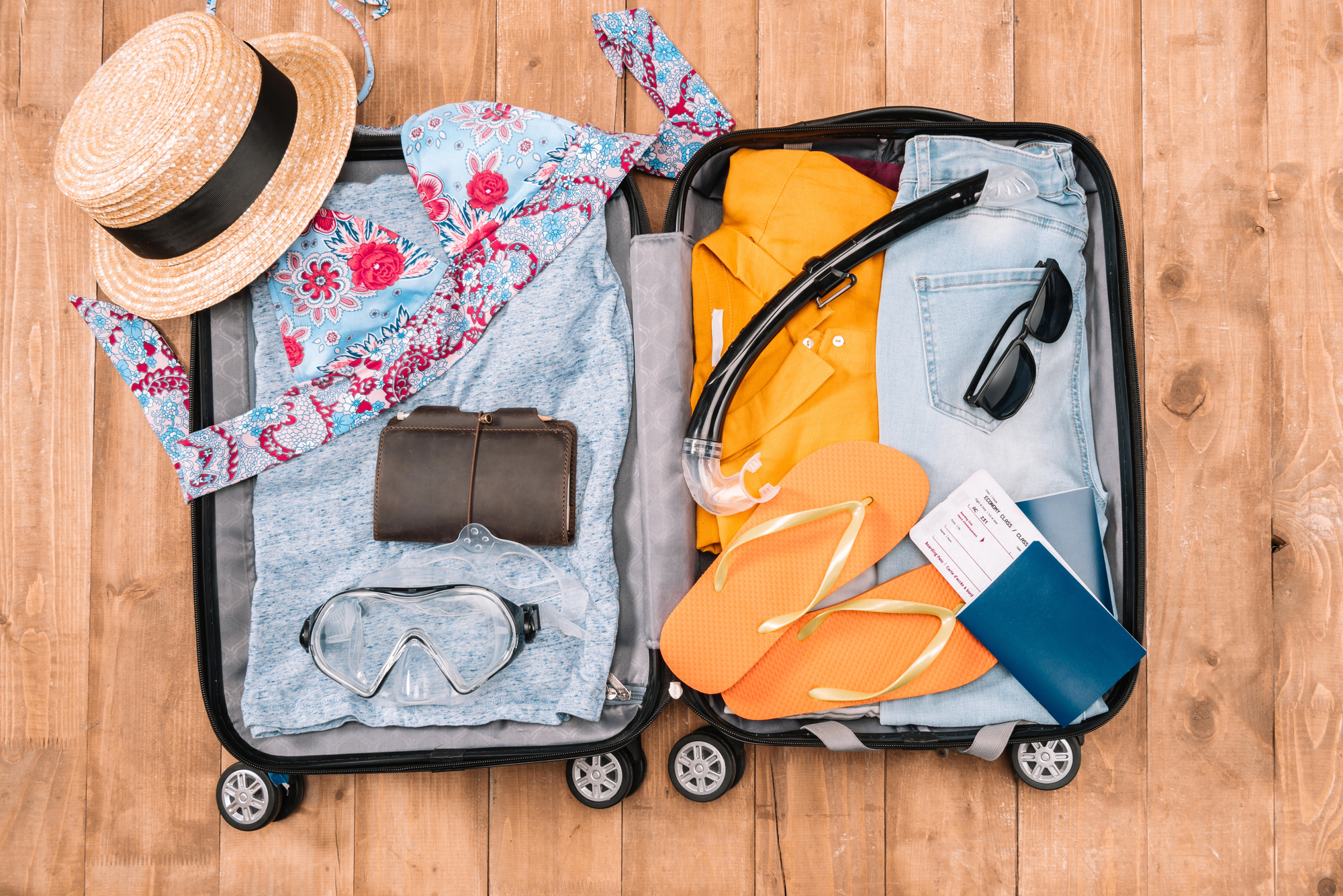The difference between an affordable vacation and a bank-breaking one typically comes down to insider tips. Seasoned travelers have sophisticated techniques that reduce expenses significantly without reducing experiences—in fact, these techniques tend to enhance adventures by pushing travelers off the tourist beaten path.
These cost-stretching techniques have moved from backpacker lore to written strategies that anyone can employ to stretch travel dollars and achieve more authentic connections to destinations. Smart travel extends beyond finding cheap flights.
Here are 20 practical travel hacks that will help preserve your budget while potentially improving your overall experience.
Flight Price Tracking Tools

The timing of ticket purchases significantly impacts flight costs, with prices often fluctuating by hundreds of dollars. Applications like Hopper, Google Flights, and Skyscanner now offer predictive tools that analyze historical pricing data to suggest whether you should book immediately or wait for likely price drops.
Setting price alerts for multiple destination options maximizes flexibility and savings potential. The Wednesday morning sweet spot for domestic flights and Tuesday evening for international routes often reveals temporary price dips.
Enabling private browsing (or using incognito mode) prevents airlines from tracking your repeated searches and potentially raising prices based on apparent interest.
Accommodation Alternatives

Looking beyond traditional hotels opens numerous budget-friendly options that enhance local connections. House sitting through established platforms provides free accommodation in exchange for pet care and property maintenance.
Home exchanges allow travelers to swap residences with others, eliminating lodging costs. Religious hostels, monastery stays, and university dorm rentals during summer breaks offer significant savings in otherwise expensive cities.
For longer stays, negotiating weekly or monthly apartment rates directly with owners can reduce costs by 30-50% compared to nightly rates, particularly when arranging payment outside booking platforms.
Strategic Credit Card Usage

Leveraging travel-focused credit cards creates opportunities for significant savings through signup bonuses, category spending bonuses, and eliminated foreign transaction fees. Cards offering statement credits for Global Entry/TSA PreCheck enrollment save both money and time at airports.
Hotel-specific cards often provide anniversary free night certificates worth several times their annual fees. Foreign transaction fees typically add 3% to every purchase abroad, making fee-free cards essential for international travelers.
Many premium travel cards include comprehensive travel insurance, potentially eliminating the need for separate coverage.
Like Travel Pug’s content? Follow us on MSN.
Transportation Arbitrage

Moving efficiently between destinations requires looking beyond obvious options. Overnight trains and buses combine transportation with accommodation, effectively eliminating one night’s lodging cost.
Budget airline hub cities often allow significant savings through self-created layovers when booked as separate tickets rather than single itineraries. Some regions offer tourist cards combining unlimited public transportation with attraction discounts, frequently paying for themselves with minimal usage.
Avoiding airport express trains in favor of slightly slower local transportation options often saves 70-80% on airport transfers in major cities.
Food Strategies

Eating habits dramatically impact travel budgets without necessarily affecting culinary experiences. Restaurant lunch specials typically offer dinner-identical dishes at 30-40% discounts.
Markets and grocery stores provide picnic ingredients at minimal cost, with many offering prepared foods at prices far below restaurant equivalents. In many destinations, food stalls frequented by locals often serve the most authentic dishes at prices 70-80% below those of tourist-oriented establishments.
Carrying a simple kit with a collapsible silicone bowl, utensils, and a cloth napkin facilitates impromptu picnics that save money while creating memorable dining experiences in scenic locations.
SIM Card Savings

International data roaming charges can quickly exceed the actual cost of a device. Local SIM cards provide data at a fraction of roaming costs, with many countries offering tourist-specific packages available at airports.
For multi-country trips, global eSIMs offer convenient alternatives that can be activated remotely before arrival. In developed countries, mobile providers frequently offer free SIMs with surprisingly generous data allowances to attract potential long-term customers.
Taking advantage of these offers rather than relying on expensive roaming plans or international packages from home carriers can save hundreds during a typical two-week journey.
Like Travel Pug’s content? Follow us on MSN.
City Tourism Cards

Many major cities offer passes combining public transportation with free or discounted attraction entry. These cards frequently provide skip-the-line benefits at popular sites, saving both time and money.
The Paris Museum Pass, London Explorer Pass, and Berlin Welcome Card exemplify options that typically pay for themselves with minimal usage. Less obvious benefits often include free walking tours, river cruises, and discounts at cafés and shops.
Calculating potential savings before purchase ensures the investment makes sense for your specific sightseeing plans rather than creating pressure to visit attractions that might otherwise not interest you.
Flexible Itineraries

Maintaining schedule flexibility allows travelers to capitalize on unexpected opportunities and deal with availability. Waiting to book internal transportation until arriving in a region frequently reveals local options costing 50-70% less than those available online.
Avoiding weekend stays in business cities (and weekday stays in leisure destinations) often yields significant accommodation savings. Traveling during shoulder seasons—the weeks immediately before and after peak periods—provides nearly identical experiences with dramatically reduced costs and crowds.
This flexibility becomes particularly valuable in regions with unpredictable weather patterns.
Water Purification Tools

Bottled water purchases represent a significant daily expense in many destinations while creating environmental waste. Portable water filters or UV purification pens allow travelers to safely drink tap water in most locations, eliminating daily beverage costs.
Modern filters weigh just a few ounces while processing thousands of liters before requiring replacement. Beyond cost savings, these tools reduce plastic waste and eliminate the need to locate water vendors during long travel days.
Some newer models incorporate activated carbon elements that improve taste while removing chemical contaminants.
Like Travel Pug’s content? Follow us on MSN.
Money Exchange Optimization

Currency conversion fees silently erode travel budgets through unfavorable exchange rates and transaction charges. Credit cards with no foreign transaction fees typically provide exchange rates very close to interbank rates, significantly better than currency exchange services.
ATM withdrawals using debit cards from banks offering global ATM fee reimbursement provide cash at favorable rates without additional charges. Apps like Wise (formerly TransferWise) offer multi-currency accounts with local bank details for receiving funds without international wire fees.
When paying by credit card abroad, always choose to be charged in the local currency rather than having the merchant convert to your home currency.
Luggage Strategy

Baggage fees can add substantial costs to otherwise budget-friendly flights. Mastering the art of minimalist packing with clothing that coordinates across multiple outfits eliminates checked bag requirements.
Wearable luggage vests with multiple pockets allow transferring heavier items from bags to your person during check-in when weight restrictions apply. Many airline credit cards include free checked bags, potentially saving hundreds on round-trip family journeys.
Learning proper packing techniques using compression cubes allows fitting significantly more clothing into carry-on compliant bags.
Volunteer Exchanges

Platforms connecting travelers with hosts worldwide facilitate free accommodation and meals in exchange for a few hours of daily work. Beyond popular farm placements through WWOOF (Worldwide Opportunities on Organic Farms), similar programs exist for language teaching, hostel help, and childcare assistance.
These arrangements typically include cultural immersion opportunities rarely available to traditional tourists, transforming travel from consumption to contribution. Building positive reviews on these platforms opens increasingly desirable opportunities, from luxury villa caretaking to yacht crewing positions that provide extraordinary experiences with minimal expenses.
Like Travel Pug’s content? Follow us on MSN.
Off-Peak Timing

Aligning travel with destination low seasons yields benefits beyond lower prices. Many locations offer “green season” rates 40-60% below peak prices despite often minimal weather differences.
Museums, attractions, and restaurants frequently provide significant discounts during specific periods to attract visitors during traditional lulls. Transportation costs often drop dramatically during shoulder and off-seasons, with identical flights sometimes costing half their high-season rates.
Locals typically prove more welcoming during quieter periods when tourism fatigue hasn’t set in, potentially leading to more authentic interactions and experiences.
Free Walking Tours

Most major cities worldwide now offer donation-based walking tours, which provide excellent orientation and local insights. These experiences allow travelers to determine appropriate payment based on the value received and their personal budget.
Beyond immediate savings, these tours frequently include insider tips about affordable restaurants, hidden attractions, and local transportation hacks that generate ongoing savings throughout your stay. Guides typically share authentic recommendations rather than commission-generating tourist establishments, enhancing both experience quality and budget preservation.
Entertainment Alternatives

Replacing expensive organized tours and activities with self-guided alternatives significantly reduces costs without sacrificing experiences. Researching free museum days—often during certain weekday afternoons or monthly evenings—provides access to world-class institutions without entry fees.
Many cities offer free outdoor concerts, cultural performances, and festivals, particularly during summer months. Picnicking in scenic parks often creates more memorable experiences than expensive restaurant meals while providing opportunities to observe local life.
University campuses frequently host free or heavily discounted performances, lectures, and exhibitions that are rarely promoted to tourists.
Like Travel Pug’s content? Follow us on MSN.
Tax Refund Opportunities

Many countries offer VAT (Value Added Tax) refunds to visitors for qualifying purchases, typically ranging from 8-25% of purchase prices. Understanding minimum purchase requirements and refund procedures before shopping allows for maximizing these opportunities.
Maintaining organized receipts and allowing extra time at departure airports ensures successful processing. Some countries now offer digital systems eliminate paperwork. Beyond traditional retail refunds, lesser-known opportunities include tax refunds on accommodations in countries like Japan and Italy when processed through proper channels.
Distance-Based Pricing

Transportation systems in many countries charge based on journey distance rather than flat fares. Understanding tap-in, tap-out systems prevents being charged maximum fares due to improper card usage.
Breaking longer journeys into segments sometimes reduces overall costs, particularly in countries with non-linear pricing structures. Certain rail systems offer significant discounts for advance purchases, with prices increasing dramatically closer to departure dates.
Some countries provide tourist-specific transportation passes that are unavailable to locals and deliver exceptional value compared to standard ticketing options.
Loyalty Program Maximization

A strategic approach to loyalty programs yields benefits beyond the obvious point accumulation. Many hotel programs offer valuable perks like free breakfast and Wi-Fi even for base-level members, with these benefits alone potentially saving $30-50 daily.
Understanding program sweet spots allows redemptions at extraordinary value, sometimes 5-10 times greater than average. Credit card points transferred to airline partners frequently provide significantly greater value than direct redemptions.
Programs occasionally offer status matches or challenges, allowing benefits earned with one company to be temporarily duplicated with competitors.
Like Travel Pug’s content? Follow us on MSN.
Receipt Checking Diligence

Billing errors and unauthorized charges occur with surprising frequency during travel. Carefully reviewing restaurant bills often reveals incorrectly added items, particularly in tourist areas where language barriers complicate verification.
Hotel folios frequently include minibar charges based on sensitive pressure sensors triggered by simply moving items to store your beverages. Currency conversion confusion sometimes leads to decimal point errors, causing significant overcharges.
Taking photos of rental car damage during pickup prevents responsibility for pre-existing issues. This vigilance requires minimal effort while potentially preventing substantial unexpected expenses.
Repositioning Deals

Twice yearly, cruise ships, rental cars, and even campervans need repositioning between seasonal markets. These one-way journeys offer extraordinary value, with two-week transatlantic cruises sometimes priced below $50 daily, including accommodation, transportation, and meals.
Similarly, rental car companies offer heavily discounted (sometimes free) one-way rentals to move vehicles between regions with seasonal demand shifts. Campervan relocations frequently include fuel allowances and free nights, effectively providing both transportation and accommodation at minimal cost.
These opportunities require flexibility but reward with experiences that would otherwise remain financially unattainable.
The New Budget Traveler

Today’s savvy travelers recognize that meaningful experiences rarely correlate with high spending. The most memorable travel moments typically come from unexpected encounters, authentic cultural connections, and natural wonders that cost nothing to appreciate.
These money-saving methods not only make travel budgets go further but also more often than not lead to more genuine experiences by pushing travelers outside the artificial environment built specifically for tourists. Embracing these strategies, travelers discover that they can see more places more intensely for less than they ever imagined.
More from Travel Pug

- Cities Growing so Fast You Won’t Recognize Them in 10 Years
- 13 Destinations Where Tourists Regularly Regret Their Trip
- 16 U.S. Cities That Are Quietly Becoming Travel Hotspots
- Where to Travel If You Love Long Bus Rides and Daydreams
- 20 Cities Perfect for Solo Travelers Who Crave Adventure & Culture
Like Travel Pug’s content? Follow us on MSN.
